(Page créée avec « - '''[https://fr.wikipedia.org/wiki/Parab%C3%A8ne parabens]''' are the preservatives added to most cosmetic, pharmaceutical and industrial products'''.''' Studies have bee... ») |
(Page créée avec « If armpit odour is sometimes unpleasant, it's because these "folds" are a particularly favourable environment for the development of bacteria, which are responsible for th... ») |
||
| Ligne 21 : | Ligne 21 : | ||
- '''[https://fr.wikipedia.org/wiki/Parab%C3%A8ne parabens]''' are the preservatives added to most cosmetic, pharmaceutical and industrial products'''.''' Studies have been underway for years to verify their harmful effects on the skin and their possible involvement in the development of breast cancer, due to their oestrogenic properties (endocrine disruptors). | - '''[https://fr.wikipedia.org/wiki/Parab%C3%A8ne parabens]''' are the preservatives added to most cosmetic, pharmaceutical and industrial products'''.''' Studies have been underway for years to verify their harmful effects on the skin and their possible involvement in the development of breast cancer, due to their oestrogenic properties (endocrine disruptors). | ||
| − | + | If armpit odour is sometimes unpleasant, it's because these "folds" are a particularly favourable environment for the development of bacteria, which are responsible for these odours. Rather than blocking perspiration, it's better to prevent '"the development of these bacteria'" by using natural antibacterial products. | |
On vous propose dans ce tutoriel 5 recettes saines, pratiques, efficaces, économiques et écologiques pour réaliser votre déodorant maison. | On vous propose dans ce tutoriel 5 recettes saines, pratiques, efficaces, économiques et écologiques pour réaliser votre déodorant maison. | ||
Version du 16 juillet 2024 à 10:56
Description
Quick, economical and environmentally-friendly recipes for homemade deodorant.
Sommaire
Sommaire
- 1 Description
- 2 Sommaire
- 3 Introduction
- 4 Video d'introduction
- 5 Étape 1 - Détails sur les ingrédients
- 6 Étape 2 - Fabrication des déodorants à base d'huile de coco
- 7 Étape 3 - Fabrication du déodorant à base de bicarbonate et d'eau
- 8 Étape 4 - Fabrication du déodorant à base de vinaigre et d'eau
- 9 Étape 5 - Fabrication du déodorant roll-on
- 10 Notes et références
- 11 Commentaires
Introduction
Deodorants are products that many of us use on a daily basis. But industrial deodorants are increasingly controversial. The reason they are regularly singled out for criticism is that most of them contain chemical substances, some of which are potentially carcinogenic, allergenic or the cause of hormonal disorders. Don't hesitate to visit this consumer site to find out how the deodorant you are currently using is rated.
Among the high-risk chemical compounds, two families are particularly controversial: aluminium salts and parabens.
- Aluminium chlorohydrate: this is the name given to the aluminium salts in your deodorant formula. These micro-particles have the property of closing the pores through which sweat flows, and therefore "'stopping the production of perspiration'". Apart from the fact that blocking this phenomenon, and therefore preventing the body's thermal self-regulation, is '"dangerous'", aluminium salts have been suspected by several studies of causing breast cancer.
- parabens are the preservatives added to most cosmetic, pharmaceutical and industrial products. Studies have been underway for years to verify their harmful effects on the skin and their possible involvement in the development of breast cancer, due to their oestrogenic properties (endocrine disruptors).
If armpit odour is sometimes unpleasant, it's because these "folds" are a particularly favourable environment for the development of bacteria, which are responsible for these odours. Rather than blocking perspiration, it's better to prevent '"the development of these bacteria'" by using natural antibacterial products.
On vous propose dans ce tutoriel 5 recettes saines, pratiques, efficaces, économiques et écologiques pour réaliser votre déodorant maison.
Versions solides :
- Très économique, contenant seulement 3 ingrédients. Son seul inconvénient : il devient liquide au dessus de 25°C (huile de coco) et à tendance à se déphaser s'il n'est pas conservé au frais. Chez soi, il peut être intéressant de prendre l'habitude de le conserver au frais
- Même base que la précédente à laquelle auquel on ajoute un 4eme ingrédient, de la cire (d'abeille ou végétale). Comme elle ne fond pas en dessous de 63°C, elle permet au déodorant de rester pris même quand il fait très chaud.
Versions liquides (pulvérisateur, roll ou gouttes) :
- Economique, locale et minimaliste (2 ingrédients) à base de bicarbonate et d'eau
- Tout aussi intéressante, à base de vinaigre et d'eau
- Recette semi-liquide adaptée aux roll-on (3 ingrédients)
Youtube
Matériaux
Déodorant baume (Hiver- liquide au dessus de 25°C)
- 4 c-à-s / 50g d’huile de coco
- 2 c-à-s / 25g de bicarbonate de sodium (le plus fin possible)
- 2 c-à-s / 25g de fécule de maïs ou arrow-root
- 10 gouttes d’huile essentielle de palmarosa
Déodorant solide (Été)
- 3 c-à-s / 40g d’huile de coco
- 10 g de cire d'abeille ou 5g de cire de candelilla)
- 2 c-à-s / 25g de bicarbonate de sodium (le plus fin possible)
- 2 c-à-s / 25g de fécule de maïs ou arrow-root
- 10 gouttes d’huile essentielle de palmarosa
Pour un déodorant solide encore plus hydratant il est possible de remplacer les 3c-à-s d'huile de coco par 2c-à-s d'huile de coco et 1c-à-s de beurre de karité
Déodorant liquide au bicarbonate
- Environ 1/8ème du volume du pulvérisateur de bicarbonate
- De l'eau pour compléter
- Optionnel : 4-8 gouttes d'huile essentielle de tea-tree ou palmarosa
Déodorant liquide au vinaigre
- 50% de volume de vinaigre de cidre (ou 25% de vinaigre blanc)
- 50% de volume d'eau (et 75% d'eau)
- Optionnel : 4-8 gouttes d'huile essentielle de tea-tree ou palmarosa
Déodorant roll-on
- 1 càc de bicarbonate très fin
- 1/2 càc d'argile
- 1 pincée de maïzena ou gomme guar (pour l'effet gel)
- 50% d'eau de chaux
- 50% d'eau
- Optionnel : 4-8 gouttes d'huile essentielle de tea-tree ou palmarosa
Outils
- Bocaux en verre pour le stockage des ingrédients
- Saladier pour le mélange
- Cuillère à soupe
- Cuillère à café
- Petit pot en verre conserver le déodorant
- Balance
Étape 1 - Détails sur les ingrédients
- Bicarbonate de sodium de qualité alimentaire : Utilisé ici pour son action désodorisante, il peut-être utilisé pour une multitude d'emplois (produit d'entretien, désodorisant, anti brûlures d'estomac, blanchissement des dents...) . Fabriqué à partir de calcaire et de sel. Peut provoquer des irritations chez certaines personnes. Peut être remplacé dans de l'argile blanche dans ce cas. Compter ~3-4 euros/kg
- Vinaigre de cidre ou vinaigre blanc : utilisés comme désodorisant. Possède la capacité de supprimer les odeurs existantes et de réduire la force des bactéries produisant les mauvaises odeurs.
- Fécule de maïs ou l’arrow-root (= fécule de rhizome de la maranta) : sont deux absorbants naturels. Ils serviront également à lier le produit.
- Huile de coco : Utilisé ici pour ses propriétés hydratantes et antibactériennes.
- Huile essentielle de Tea Tree : utilisées pour ses propriétés antibactériennes et sa forte odeur pour retarder puis masquer les "mauvaises odeurs" de sudation.
- Huile essentielle de Palmarosa : À favoriser pour ses propriétés antibactérienne et antifongique.
- Cire d'abeille : Utilisé à la fois pour ses propriétés hydrophobes et antibactériennes, sa haute température de fusion (63°C) permet au déodorant de rester solide en toute circonstance.
Étape 2 - Fabrication des déodorants à base d'huile de coco
Déodorant baume (hiver) :
- Ajouter l'huile de coco liquide (préalablement fondue près d'une source de chaleur si besoin) au bicarbonate de sodium et à la fécule. Versez 10 gouttes d'huile essentielle de palmarosa.
- Bien mélanger le tout pour le rendre bien homogène.
- Couler le tout dans un petit pot/contenant en verre.
- Mettre le tout au réfrigérateur pour qu'il se fige.
Conserver à température ambiante. Appliquer avec le doigt sous les aisselles.
Étape 3 - Fabrication du déodorant à base de bicarbonate et d'eau
Prendre un petit format de vaporisateur permet de garder à portée de main toute la journée le déodorant en cas de besoins.
- Dissoudre un peu de bicarbonate dans l'eau. Attention à ne pas atteindre la saturation (limite où le bicarbonate ne se dissout plus) car la recristalisation risque de boucher le pulvérisateur. Si jamais vous atteignez ce cap, rajoutez un peu d'eau.
- Compléter le volume du pulvérisateur avec ce liquide
- ajouter en option 4-8 gouttes d'huile essentielle de tea tree ou palmarosa (ou autre suivant vos préférences). Pour une meilleure répartition de l'huile essentielle on peut ajouter un lichette d'alcool (qui servira de liant, les huille essentielles n'étant pas miscibles dans l'eau)
Pour parfumer vous pouvez remplacer l'eau par de l'hydrolat
Bien secouer avant utilisation.
Conservation plusieures semaines/mois sans besoin de frigo.
Étape 4 - Fabrication du déodorant à base de vinaigre et d'eau
Prendre un petit format de vaporisateur permet de garder à portée de main toute la journée le déodorant en cas de besoins.
- Verser dans un flacon 50% d'eau et 50% de vinaigre de cidre
- OU verser 25% de vinaigre blanc et 75% de volume en eau
- ajouter en option 4-8 gouttes d'huile essentielle de tea tree ou palmarosa (ou autre suivant vos préférences).
Pour parfumer vous pouvez remplacer l'eau par de l'hydrolat.
Attention, la présence d'acide et d'alcool du vinaigre peut irriter après rasage ou épilation.
Conservation plusieures semaines/mois sans besoin de frigo.
Étape 5 - Fabrication du déodorant roll-on
Dans un petit bol mélanger les ingrédients :
- 1 càc de bicarbonate très fin
- 1/2 càc d'argile
- 1 pincée de maïzena ou gomme guar
- En option 2 gouttes d'huile essentielle
- après avoir mélangé les ingrédients secs ajouter selon le volume du roll, 50% d'eau et 50% d'eau de chaux.
Bien agiter avant utilisation.
Conservation plusieures semaines/mois sans besoin de frigo.
Notes et références
-Etude sur les risques de sels d'aluminium : https://www.ncbi.nlm.nih.gov/pmc/articles/PMC5514401/
- Dossier santé sur les déodorants et autres recettes : https://amelioretasante.com/comment-faire-un-deodorant-naturel/
- Huile de coco, les dessous de la récolte: https://lacoquetteethique.com/protection-animale/huile-de-coco-ecologie-vegan/
Published
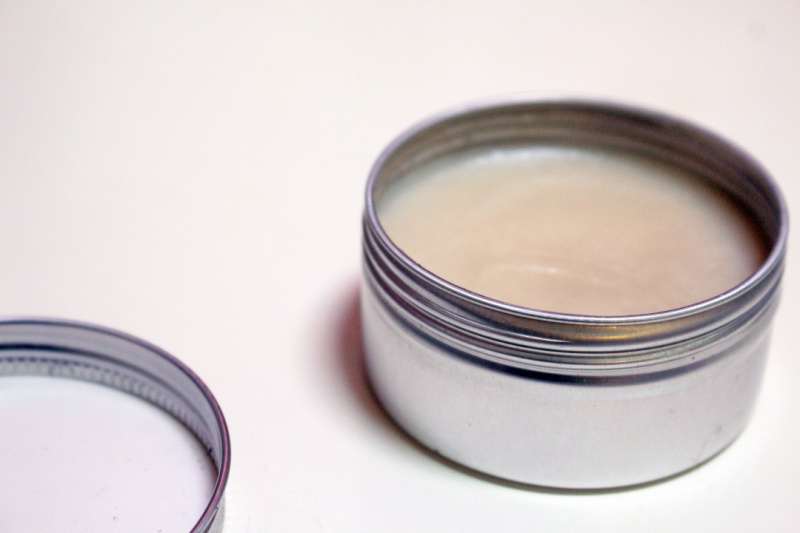
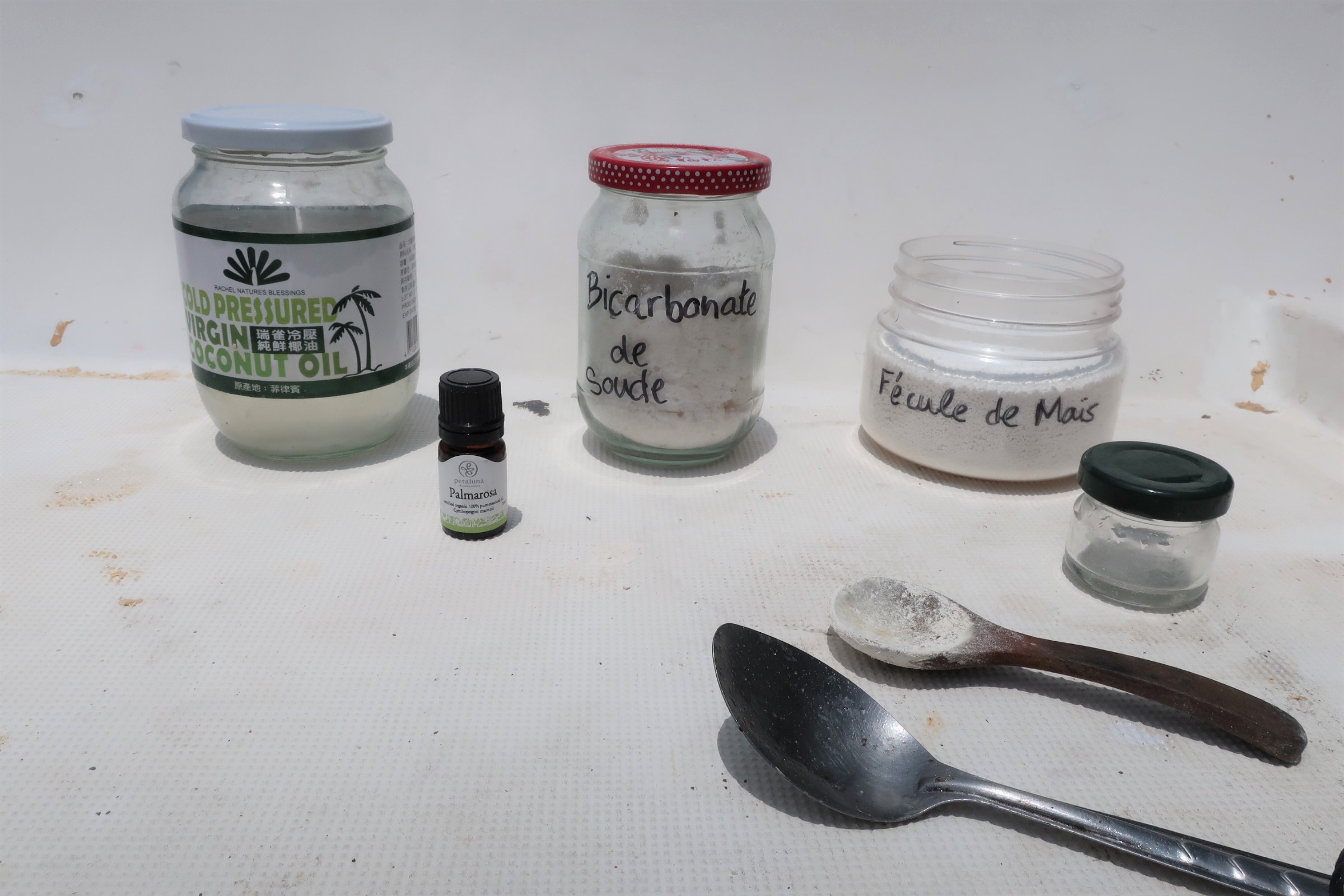
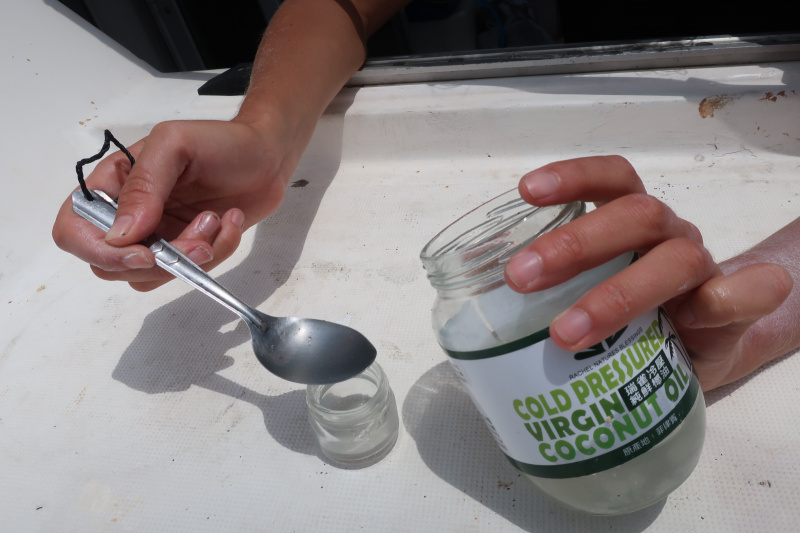
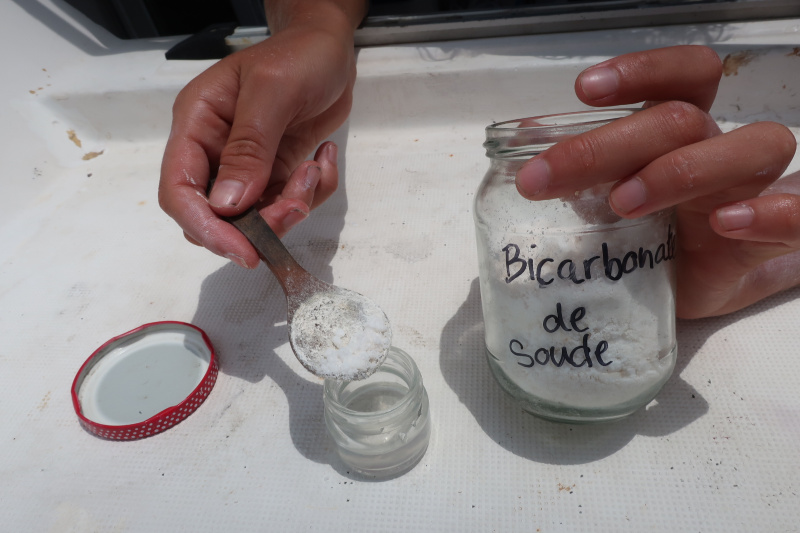
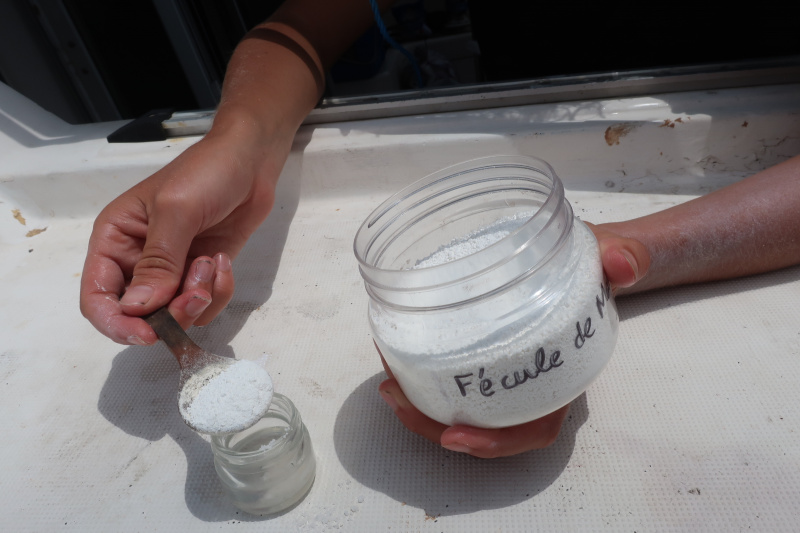
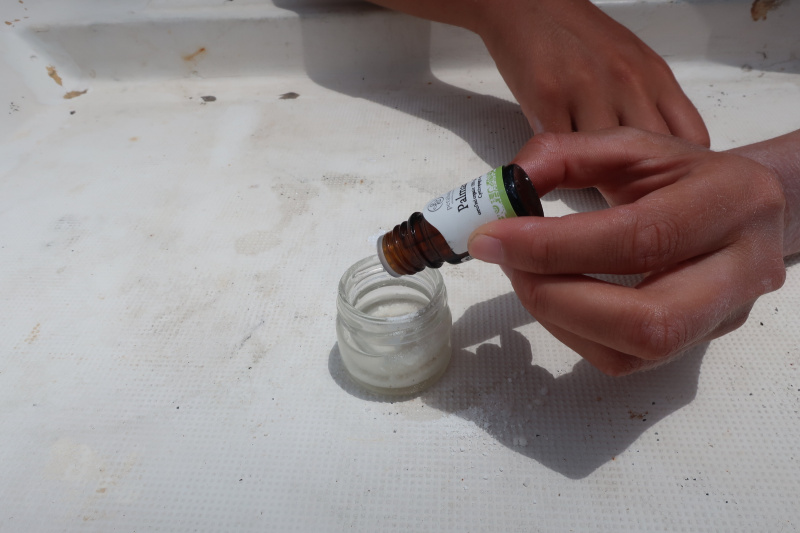
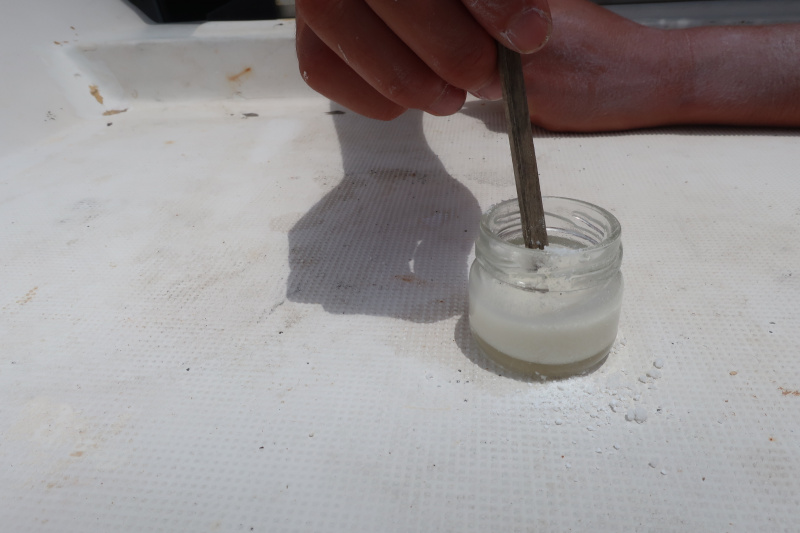
 Français
Français English
English Deutsch
Deutsch Español
Español Italiano
Italiano Português
Português